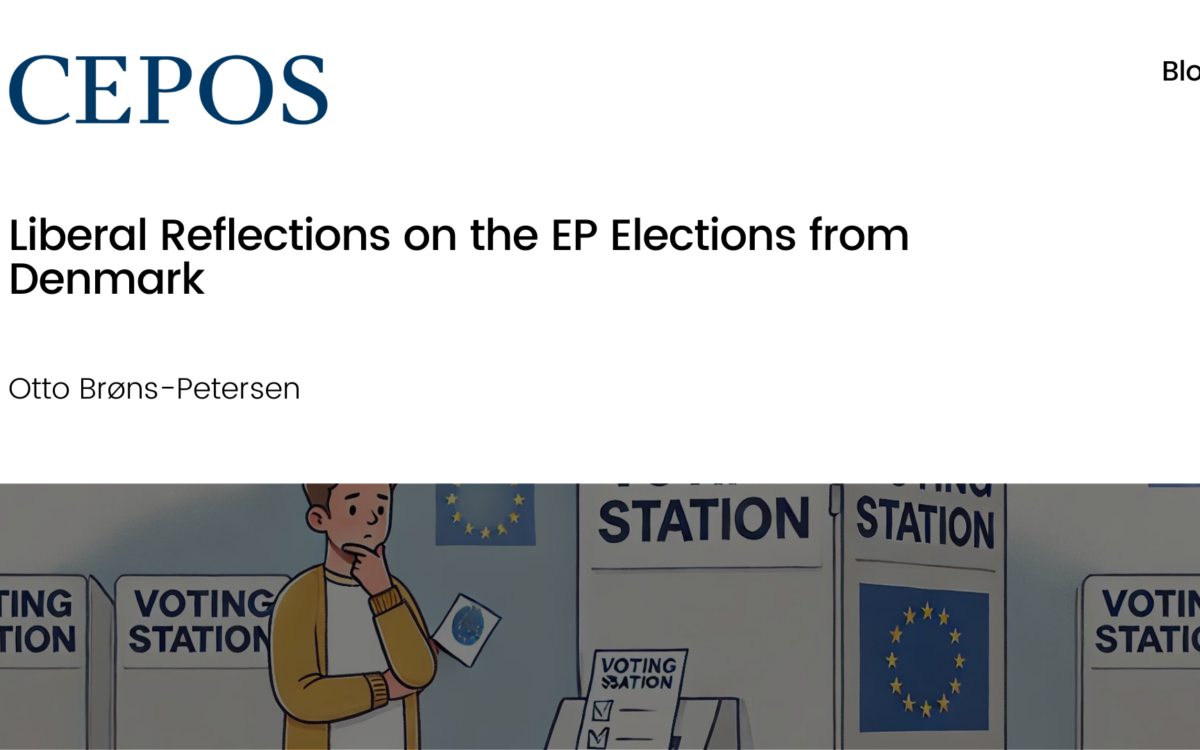European Superindex

Taxation in an Inflationary Era
Diego Sánchez de la Cruz // 2 July 2024
In recent years, inflation has emerged as a formidable challenge, reshaping the economic landscape across the European Union. Driven by a confluence of poor monetary policy decisions, unexpected supply–demand shocks, rising energy costs due to the war in Ukraine, and the lingering effects of the COVID-19 pandemic, this wave of rising prices requires urgent attention to mitigate its adverse impact on taxpayers.
Our new Tax Foundation report with Santiago Calvo underscores the critical need for adaptive fiscal policies to help navigate the current high-inflation environment. Between January 2020 and December 2023, prices surged cumulatively by 21.3 per cent in the EU (+18.9 per cent in the Euro area). This damaging inflationary pressure has not only strained household budgets but also significantly altered tax dynamics, disproportionately increasing the tax burden on taxpayers without commensurate increases in real incomes.
Inflation inherently raises nominal tax bases, leading to increased tax revenues through ‘fiscal drag’: a phenomenon where taxpayers are pushed into higher tax brackets due to nominal income increases, despite no real growth in their purchasing power. This effect has led to an average increase of 0.84 per cent in the tax wedge between 2019 and 2022, as nominal incomes rose though real economic capacity remained stagnant.
EU member states have responded variably to inflation, often opting for discretionary measures over automatic adjustments. This discretionary approach has resulted in inflation-driven tax collections contributing an additional 1.5 per cent of GDP to government revenues, accounting for 40 per cent of the tax revenue increase since 2019. However, this strategy lacks consistency and fails to shield taxpayers from the adverse effects of fiscal drag.
One of our pivotal recommendations is the implementation of automatic indexation in tax rules. Making automatic adjustments to tax thresholds and benefits based on inflation can help prevent taxpayers from being inadvertently pushed into higher tax brackets, ensuring that tax liabilities do not disproportionately increase due to inflation. Currently, only Austria, Denmark, and the Netherlands have some mechanisms in place that allow for adjusting income tax thresholds according to inflation. Other countries like Belgium, Finland, France, Germany, and Sweden make periodic adjustments; however, they do not have automatic indexing rules in place.
Automatic indexation is not merely a matter of making technical adjustments to the tax code. Rather, it is a measure of fairness and efficiency. It protects taxpayers from fiscal drag and ensures that social benefits retain their real value, thus helping to mitigate poverty and economic inequality exacerbated by inflation. For instance, the report highlights that Spanish households experienced an increase of €557 in income taxes and €392 in value-added taxes (VAT) between 2021 and 2023 due to inflation, totalling an impact of €10.45 billion. Such fiscal pressure could have been alleviated with timely indexation measures.
Economic research has clearly established that inflation disproportionately affects low-income households, who spend a larger portion of their income on essentials such as energy and food. The rising cost of these necessities deepens economic inequality. It also underscores the need for good fiscal policies that avoid adding an extra layer of vulnerability created by increasing the de facto tax burden of these households due to the non-adjustment of inflation.
Inflation-induced fiscal drag can lead to a temporary improvement in government fiscal balances, reducing debt-to-GDP ratios. However, this effect is often transient, as public spending eventually adjusts to the new price levels. Therefore, maintaining fiscal neutrality—where the tax system’s effects on incentives and burdens do not change with inflation—is essential to prevent long-term economic distortions.
To effectively address the challenges posed by high inflation, our report advocates for several key policy measures. Among them, we highlight the need to move towards automatic indexation (adopting immediate adjustment mechanisms for tax thresholds to ensure a fairer tax system that keeps pace with inflation, avoids fiscal drag, and protects real incomes for all households) and avoiding tax hikes overall (as this only adds further complexities to the challenge of high inflation).
At this critical juncture, it is imperative that EU member states take decisive action to reform their fiscal policies, ensuring resilience against future inflationary shocks and fostering a stable economic environment for all citizens, with competitive taxation that allows for low rates, broad bases, and a revenue-neutral approach to inflationary dynamics.
Diego Sánchez de la Cruz is Head of Research at Instituto Juan de Mariana, CEO of Foro Regulación Inteligente and Associate Researcher at Instituto de Estudios Económicos.
EPICENTER publications and contributions from our member think tanks are designed to promote the discussion of economic issues and the role of markets in solving economic and social problems. As with all EPICENTER publications, the views expressed here are those of the author and not EPICENTER or its member think tanks (which have no corporate view).



